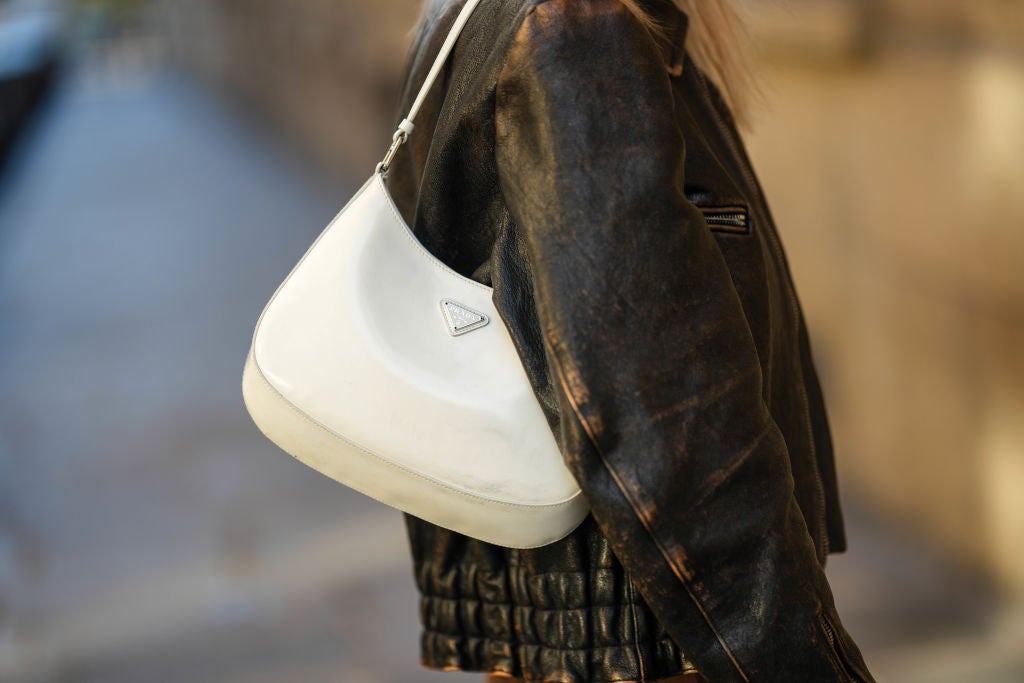
Data analysis company GlobalData defines blockchain as an electronic ledger of transactions that is continuously maintained in blocks of record and is jointly held and run by all participants. It is coupled with cryptographic security making the ledger tamper-proof.
GlobalData further highlights that blockchain is increasingly being used in the supply chain to guarantee authenticity and provenance.
In simpler terms, by using blockchain, each stage of a fashion product’s lifecycle can be recorded and verified including the creation of raw materials, manufacturing, distribution, and retail.
Digital transparency company, Everledger referred to the recent Global Brand Counterfeiting Report estimated losses of nearly $100bn due to the counterfeiting of goods. The company believes “protecting brand authenticity” has therefore risen high up in the agenda for businesses.
The company said: “When products from a fashion label are counterfeited, reputations built on craft, origin, and quality are inevitably tarnished. The leading brands must find new ways of reassuring customers that they are buying the genuine article.”
Uniqlo vs Shein case
In a recent counterfeiting fiasco, Fast Retailing’s Uniqlo filed a lawsuit against fast-fashion retailer Shein for copying its “Round Mini Shoulder Bag.”

US Tariffs are shifting - will you react or anticipate?
Don’t let policy changes catch you off guard. Stay proactive with real-time data and expert analysis.
By GlobalDataAs part of the petition, Uniqlo demanded an immediate halt to the “sales of the imitation products,” and sought compensation for damages incurred by the company as a result of these sales.
The petition was filed on 28 December 2023, against three operators of Shein, namely, Roadget Business Pte. Ltd., Fashion Choice Pte. Ltd., and Shein Japan Co. Ltd. in the Tokyo district court.
Uniqlo disclosed that the company lodged this complaint after identifying a striking resemblance between the form of Shein’s “imitation products” and their own. Uniqlo asserted that the sale of these “imitation products” by Shein significantly undermines the “high level” of customer confidence in the quality of the Uniqlo brand and its products.
A spokesperson from Shein told Just Style that the fashion retailer respects the intellectual property rights of others and takes all claims of infringement seriously and is currently investigating this matter.
Using blockchain as a barrier to counterfeit goods
Nicklas Nilsson, consultant of Thematic Intelligence at GlobalData, explained that blockchain, especially in combination with IoT (Internet of Things) solutions, offers a promising solution to ensure product authenticity.
Nilsson continued: “While blockchain itself cannot physically prevent the creation of counterfeit goods, it can create a secure and immutable record for each product, which makes it easier to verify genuine products and track their origin. However, its effectiveness depends on several factors, including integration with technologies like RFID (Radio Frequency Identification) and NFC (Near Field Communication), which serve as a bridge between the physical product and its digital representation on the blockchain.”
He shared an example of purchasing a second-hand handbag from a retailer, adding how each authentic handbag can be equipped with an NFC chip containing a unique identifier linked to the blockchain.
Nilsson pointed out: “When this NFC chip is scanned at resale, it triggers an update both on the chip and on the blockchain record, effectively registering the change in ownership. If a counterfeit bag with a cloned NFC chip appears on the market, scanning it would reveal inconsistencies, flagging them as potential fakes. While this system doesn’t determine which bag is the original without physical verification, it raises a red flag about the item’s authenticity, prompting further investigation. As such, the dynamic interplay between NFC chips and blockchain significantly increases the barrier to create counterfeit goods, enhancing brand protection and consumers in the high-value fashion market.”
In the case of Uniqlo and Shein, Nilsson said Blockchain could potentially support IP protection by providing a digital registry of designs and trademarks, making it easier to prove originality and ownership. However, he noted that the enforcement against copying and infringement primarily remains a legal challenge.
Last, he believes that in addition to enhancing anti-counterfeiting measures, blockchain implementations like the above offer added benefits to consumers, such as deeper insights into their purchases. It provides information about a product’s origin, warranty, repair history, and previous ownership, catering to the growing consumer demand for transparency and responsible sourcing.
Is Blockchain still nascent tech in apparel?

GlobalData’s company filings data from January 2019 to 2024 show ‘blockchain’ as a dominant theme in the apparel industry. The mentions of ‘blockchain’ peaked in 2022 with 114 mentions, however, it dropped to an all-time-low of 32 in 2023.
Other themes that followed were technology and crypto, with 11 and 44 mentions respectively in 2023.
While data highlights that blockchain is the talk of the town, the pace of adoption for this technology is fairly nascent. Nevertheless, the apparel industry recognises the potential of blockchain, especially in addressing counterfeit issues in fashion and meeting the growing demand for transparency.
Last year, Just Style reported blockchain platform TextileGenesis had signed a memorandum of understanding (MoU) with the International Cotton Association (ICA), to increase digital collaboration and promote ethical trade and sustainability within the fashion and textile industry.


